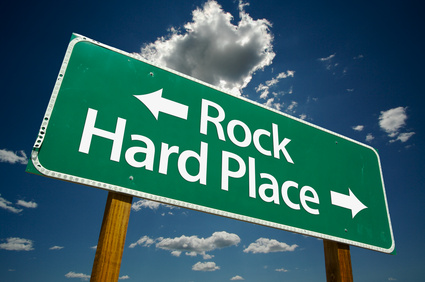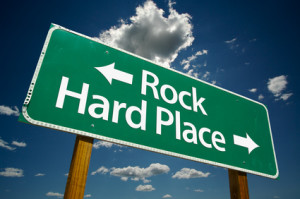Recently, I received this email from a doctoral student.
“I am in a bit of a bind. I have just defended my dissertation, and I have two committee members who will not pass me, because I coded directly on my audio instead of transcribing. They are now requiring transcripts in order for me to pass. I have approximately 206 minutes of audio that I need transcribed in naturalistic form with timestamps. Can you help?”
I realized that some researches don’t know if and when they should get their dissertation interviews transcribed. Let’s begin with the first question: do you have to transcribe dissertation research interviews? If you conduct qualitative interviews, you’ll need to transcribe the interviews. And that’s because of how you code (you’ll be looking for themes, categories etc) from your data and how you’ll report your findings; using interview excerpts/vignettes.
Have I ever come across an instance where a researcher did not need to transcribe their dissertation interviews? Yes, I have. They were conducting quantitative interviews (surveys) with young kids. So it was easier for them to conduct the interview/survey in person, as opposed to a written survey. Regardless, the researcher choose to have the interviews transcribed; it was easier for them to numerically code the responses from the transcripts.
If you don’t transcribe your qualitative interviews, you must have a very good reason (backed up with published references), as to why you choose your research methodology for your dissertation committee. To summarize, if you plan to conduct qualitative interviews, plan to transcribe them!
To the second question, during your qualitative research, when should you transcribe your interviews. Obviously not after you have defended your dissertation. Researchers get in touch wishing to know if they should send me the recording(s) of their audio interviews as they conduct them, in batches, or when they are done conducting the interviews. The answer depends on these 3 factors.
1. Who is the Transcriber
The first consideration is; who is going to transcribe the interviews? If one chooses to hire a transcriber, you’ll have more leeway on when to get your interviews transcribed.
If you are on a tight budget you will want to give your transcriber a lot of time to transcribe your interviews. Generally, the longer the turnaround, the cheaper the transcription. Rush transcriptions cost more. As soon as you establish a budget for the entire project, that’d be a good time to project when transcription should begin to avoid last minute rushes.
If cost is not a constrain (and it rarely isn’t) then you can request rush transcripts. But keep in mind that it will cost you 2-4 times more than normal turnaround.
If you can’t afford to hire a transcription, or choose to do your own transcription (always recommended), keep in mind that transcription takes a lot of time. If you wish to transcribe the interviews yourself, you need to set aside adequate time to transcribe the interviews.
As a novice transcriber, it’s going to take you 8-10 hours to transcribe a 1-hour long interview. So if you have 20, 1-hour interviews you should budget 20, 8 hours working days to transcribe your interviews. Budget this time into your dissertation completion calendar.
Secondly, projects vary in terms of scope, duration. For large projects, interviews may be conduction over a span of 2-3 years. And may also involve hundreds of interview subjects. Smaller projects may have a little as 10 interviews that span a couple of weeks. In these instances, what’s the key factor in determining when you should get your interviews transcribed?
How much time you have before you defend your dissertation. If there is plenty of time, then you can have the transcription done all at once or in batches. If you are on a time crunch, then it would be unwise not to start transcriptions early, in bits and as quickly as possible.
2. Transcription Style
Depending on your field of study and research, you will need to define which transcription style is ideal for you. If you intend to perform discourse analysis, verbatim transcription of your research interviews is recommended. This format is more time consuming. Keep in mind it will take longer before you get your transcripts.
For most research projects, an intelligent verbatim style is used. This style takes less time than strict verbatim transcription and thus reduces transcription turnaround and cost. Some researchers require timestamps to be added to the transcripts so that they can more easily reference the audio for citations of quotes. Adding timestamps takes time, so budget accordingly.
3. Audio Quality
Finally, the quality of the recording will determine the time required to transcribe. Unclear and distorted recordings would definitely take a longer time to transcribe. Clear audio, with no background noise (here’s a short post on how to record good quality audio), is easier and faster to transcribe. So if you have poor interview audio recordings, you need to budget more time and money for transcription.
In Summary
Conducting dissertation interviews is a vital step in most post graduate studies. Now, once you’ve recorded the interviews it is safe, efficient, time saving, and convenient to have the interviews transcribed for easy compilation, reporting and analysis. Transcription is inevitable step in writing and defending your thesis.
When to transcribe your research interviews is entirely a personal decision. As I have outlined above there are 3 questions you need to ask yourself. 1) Who is going to do the transcription? If you hire a professional transcriber, you have a lot more leeway on when you can get your interviews transcribed. If cost is a constraint for you, get your interviews transcribed as soon as you conduct them – it will cost you less.
If you have lots of time, transcribed your dissertation interviews in batches or when they are all conducted. If you are on a time crunch, transcribe them as soon as you conduct them. For small projects, I recommend transcribing all the interviews in one batch, and for larger projects grouping the interviews into batches of 10 for transcription. If you have cost and time constrains, you are caught between a rock and a hard place.
2) What transcription style do you need for your research? If you are looking for a verbatim transcription, transcribe the interviews as soon as you conduct them. If you are looking for an intelligent verbatim transcription, get the transcripts in batches or all at once.
3) Audio quality. Good audio quality interviews are easier and faster to transcribe.
Whatever you do, don’t wait until you have defended your dissertation before looking for a dissertation transcription service. Get in touch.


